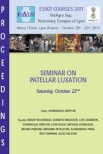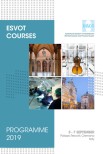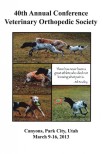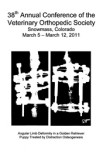Objective: The aim of this study was to describe short- and mid-term outcomes, complications, implant bioabsorption and owner satisfaction for a modified Maquet procedure (MMP) in which a novel bioabsorbable citrate-based implant is used as the wedge component to treat cranial cruciate ligament rupture in client-owned dogs.
Study design: Prospective clinical study of dogs (n = 13) undergoing MMP (n = 15). Intraoperative complications, postoperative complications, clinical follow-up using a 5-point lameness score and radiographs at 8 weeks and 6 months postoperatively were obtained. Mid-term outcome was assessed via physical examination, radiographs, canine orthopaedic index and owner satisfaction questionnaires.
Results: No catastrophic complications occurred. Major complications occurred in 3/15 stifles. All were surgical site infections and one case required implant removal. Minor complications occurred in 9/15 stifles. Non-displaced cortical hinge fractures were the most common minor complication, and these occurred intraoperatively (4/15) or postoperatively (2/15). Three dogs achieved full function, eight dogs acceptable function and the outcome was unacceptable in two dogs. Most owners were satisfied with the procedure (11/13). Complete implant bioabsorption was not confirmed on mid-term radiographs.
Conclusion: The described MMP with a citrate-based implant can produce satisfactory mid-term results. However, the long-term outcome of this procedure must be evaluated and technical modifications need to be implemented prior to larger-scale use of this implant.









